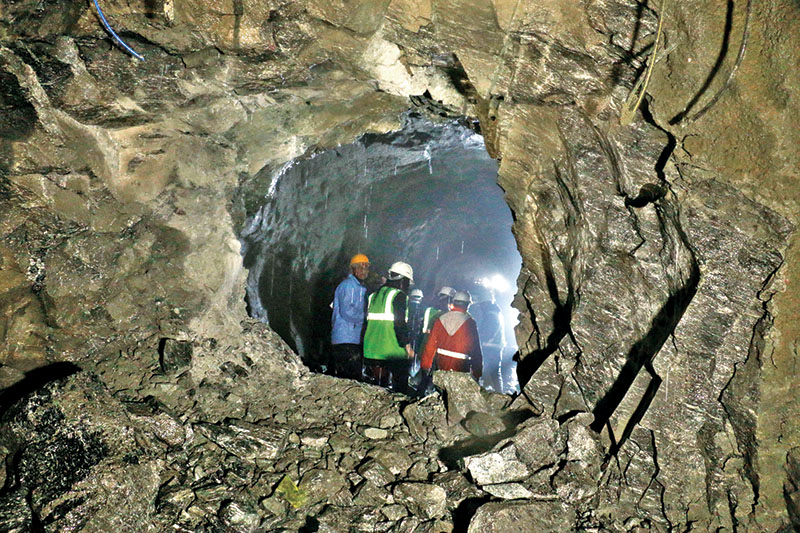Distribution system to be built in four months
Kathmandu, February 17
The Project Implementation Directorate of Kathmandu Upatyaka Khanepani Limited has completed the construction of around 533 km of the 670 km distribution system network being built for the supply of Melamchi water in the Kathmandu Valley.
PID has claimed that it will complete the remaining construction work of the distribution system network by the next four months, prior to the beginning of the monsoon season. Organising a press meet today, PID Project Director Tiresh Prasad Khatri said of the 60 km of the bulk distribution system, 39 km had been constructed so far.
“We are expediting the installation of pipelines with the objective of completing the entire distribution network before monsoon season begins,” he said, adding, “It could take approximately four months from now, so that the Melamchi project can meet its given target to begin water supply by October 2017.”
In order to complete the remaining work within the targeted time frame, the PID/KUKL has mobilised its team at the task round-the-clock.
Currently, more than 1,200 workers are working in about 40 different sites
Currently, more than 1,200 workers are working in about 40 different sites with the target to accomplish all pipe-laying wok before the completion of the tunnel work. “The PID is equally aware of the environmental problems faced by Valley denizens, and has already taken several steps to minimise the environmental impact at its sites.
We would like to inform the public through the press about our initiatives in mitigating environmental problems that may arise from our project,” Project Director Khatri added.
The PID has been working on the development of the infrastructure for the distribution of Melamchi water within Kathmandu Valley. This involves the construction of the distribution network, bulk distribution system, and service reservoir tanks. Certain targets have been fixed so that the first phase can be completed within December 31, 2017.
In order to achieve the above mentioned target, the PID has been working hard so that drinking water can be readily distributed to the residents of Kathmandu Valley as soon as the Melamchi water arrives at Sundarijal through the tunnel.
It is expected that about 1.3 million people in the Valley will be served under this first phase through around 85,000 household connections. It has also been envisaged that by the end of 2017, KUKL will deliver adequate daily amounts of safe drinking water to its customers. This means that water will be supplied for up to four hours per day at scheduled times, although some households on the old network system may receive less due to old pipes and system losses.
While undertaking construction work such as pipe laying activities of the Distribution Network Improvement and the Bulk Distribution System of Melamchi Sub Project II, problems of dust often prevail.
“We are well aware that it is an offence under the Environmental Protection Act, 1997 to cause significant adverse impacts on the environment likely to be hazardous to public life and people’s health,” the press release reads.
It states further that the Safeguard Policy Statement 2009 requires all ADB financed and/or ADB administered projects to develop a structured process of impact assessment, planning, and mitigation to address the adverse effects of projects throughout the project cycle.






